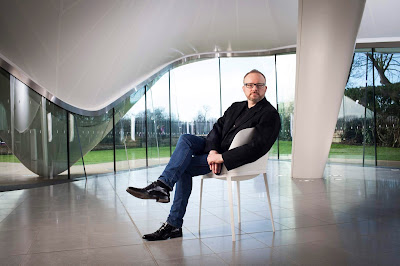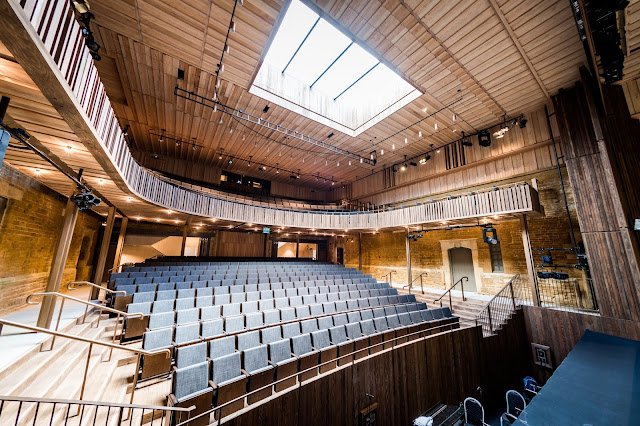 |
| © Hannah Quinlivan, Immobilised (drawing performance with movement) L-R: Louise Keast, Shikara Ringdahl Photographer: Alex Hobba |
The centre piece is Bushra El-Turk and librettist Eleanor Knight’s hard-hitting chamber opera Silk Moth (2015) which explores the psychological landscape of a mother implicated in the forced marriage, genital mutilation, and honour killing of her own daughter, with Liza Lim's The Heart’s Ear (1997) as a dramatised prologue, with both works interweaving Arabic music with Western. And Cassandra Miller’s Bel Canto (2010), a portrait of Maria Callas, completes the programme. Ruthless Jabiru’s core ensemble will be augmented by musicians from the experimental Middle Eastern initiative Ensemble Zar as guests within the orchestra.
Ruthless Jabiru's patron is the Australia composer Brett Dean, and recent projects have included a tribute to the damaged landscape of Maralinga alongside the Australia exhibition at the Royal Academy of Arts, and an homage to poet Oodgeroo Noonuccal at the inaugural Australia & New Zealand Festival of Literature & Arts.
Full details from the Ruthless Jabiru website, and Arcola Theatre website.































%20in%20The%20Merry%20Widow.%20Credit%20Mihaela%20Bodlovic.%20(2).jpg)

%20in%20Trial%20by%20Jury.%20Credit%20Mihaela%20Bodlovic..jpg)

.jpg)
%20Britten%20Pears%20Arts%20(1).jpg)


